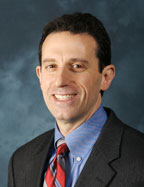By Barbara Ficarra, RN, BSN, MPA
 I asked Daniel Sands, MD, MPH, Director of Medical Informatics at Cisco IBSG and a primary care physician at Beth Israel Deaconess Medical Center, a few questions about twitter.
I asked Daniel Sands, MD, MPH, Director of Medical Informatics at Cisco IBSG and a primary care physician at Beth Israel Deaconess Medical Center, a few questions about twitter.
1. What value does tweeting health info bring to the public?
By following tweets from health information sources that they trust, people can get general health tips, preventive health information, disease specific information, and even suggestions about to be more engaged in their health care. You might also get health coaching from a health professional, a health coach, or even peers (“Did you exercise today?” “I walked 5110 steps today-how many did you walk?”).
By directly replying (sending a private message) to these people, they can interact with these health professionals to ask them questions-this is similar what might be done on a health information website or through e-messaging with a health professional.
2. How does being on twitter foster you/your profession?
If you are a physician and want to have a “web presence,” Twitter offers you another arrow in your quiver. You can have a web page, a patient portal, a social networking page (e.g., FaceBook or LinkedIn), a blog, and this is yet one more way you can reach an audience. This may be useful to build your practice, especially if you’re trying to attract patients with particular conditions.
3. Are there downfalls to tweeting?
Yes. One major issue is a limited audience (about 3 million users on Twitter, but not all active). The other very important issue is that you don’t really know who the Twitterers are-only who they say they are. You may be following someone named Albert Schweitzer (there are four on Twitter), but you don’t know if he’s the famous physician named Albert Schweitzer (none are-he’s deceased). So how can you trust the information you are getting? Until there is some identity certification on Twitter, you need to be cautious about what you read unless you know for certain someone’s Twitter name.
Twitter is a very new technology used by a small minority of web users. I think its major role in health care is in health education and coaching, but we need more experience with it.
